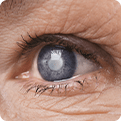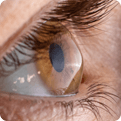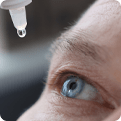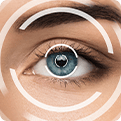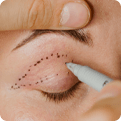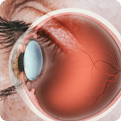
Do you keep the brightness on your smartphone turned up all the way? Have you considered using night mode to reduce the strain that the bright lights can cause on your eyesight? Whether you simply want to reduce blue light to improve your sleep patterns or are interested improving your eye care, there are several benefits to using night mode on your smartphone, tablet, and computer.
3 Benefits of Using Night Mode on Your Smartphone
Turning down the brightness on your phone is not the same as using night mode. As its name suggests, night mode is designed to help your eyes at the end of the day. It works by using a red or orange light, which is less harsh on your eyesight. In fact, night mode has three key benefits that might make you start using it tonight.
1. Reduce Dry Eye
Did you know that brighter lights, such as the blue light that is emitted from a smartphone screen, can cause dry eyes? The good news is that you can reduce the risk of dry eye simply by using the dimmer in night mode. Much like wearing sunglasses in the sun, night mode gives your eyes the relief that they need throughout the day.
2. Reduce Eye Strain
Digital eye strain impacts an estimated 65 percent of working Americans on a near daily basis. Just as staring at the sun behind the clouds can make your eyes hurt, so too can blue light strain your eyes. Whether you are staring at your computer for work or spending too long on social media, you need to give your eyes a break throughout the day. The good news is that you can reduce the negative impacts of eye strain by taking a break at least once every hour and using night mode to filter out blue light.
3. Prevent Retinal Damage
Are you spending more than eight hours on your phone, tablet, and/or computer on a daily basis? If you are spending the majority of your day on digital devices, then you are not only at a higher risk for eye strain, but you can also drastically increase your risk for macular degeneration. If your retina is damaged, you can suffer from blurry vision and, in extreme cases, blindness. Unfortunately, blue light can cause further damage to already strained eyes, which is why you should use night mode on your smartphone to reduce the risk to your photoreceptor cells.
Take Care of Your Eyesight Today
In addition to using night mode to reduce retinal damage, eye strain, and dry eye, you can also schedule an appointment with Eye Care of Delaware to ensure that you are taking care of your eyesight on a daily basis. The Eye Care of Delaware team is dedicated to exceeding patient expectations by providing exemplary diagnostic services, cataract treatments, surgeries, and eye exams. To take the first step toward protecting your eyesight, contact Eye Care of Delaware by calling (302) 454-8800 today.

